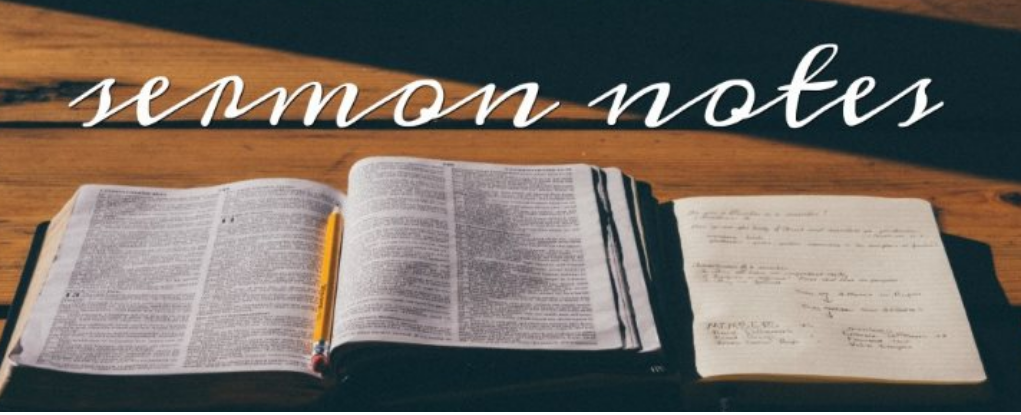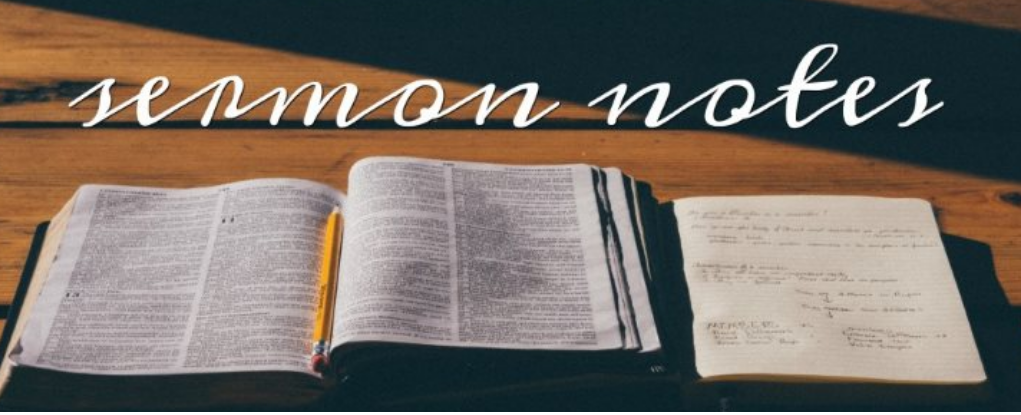
Meditation of the Day – The Presence of the Blessed Sacrament


416 N 2nd St, Albemarle NC 28001 | (704) 982-2910


“No one can fail to understand that the Divine Eucharist bestows upon the Christian people an incomparable dignity. Not only while the Sacrifice is offered and the Sacrament is received, but as long as the Eucharist is kept in our churches and oratories, Christ is truly Emmanuel, that is, ‘God with us’. Day and night He is in our midst, He dwells with us, full of grace and truth. He restores morality, nourishes virtues, consoles the afflicted, strengthens the weak. He proposes His own example to those who come to Him that all may learn to be, like Himself, meek and humble of heart and to seek not their own interests but those of God. Anyone who approaches this august Sacrament with special devotion and endeavors to return generous love for Christ’s own infinite love, will experience and fully understand—not without spiritual joy and fruit—how precious is the life hidden with Christ in God and how great is the value of converse with Christ, for there is nothing more consoling on earth, nothing more efficacious for advancing along the road of holiness.”— Bl. Pope Paul VI, p.52
//The Catholic Company//


From ancient times the Easter octave, culminating on the 8th day, has been centered on the theme of God’s mercy and forgiveness. The final day of the octave celebration of Easter is meant to be a day of thanksgiving to God for his goodness to mankind through the Paschal mystery, that is, the Passion, death, and Resurrection of our Savior Jesus Christ. The Second Sunday of Easter was named Divine Mercy Sunday by Pope St. John Paul II following a request from Our Lord in his private revelations to St. Faustina Kowalska. On this day Jesus promised to open the floodgates of his inexhaustible mercy and shower abundant graces on those who participate in this feast day. A plenary indulgence is granted (under the usual conditions of sacramental confession, Eucharistic communion, and prayer for the intentions of the Holy Father) to the faithful who, in any church or chapel, in a spirit that is completely detached from the affection for a sin, even a venial sin, take part in the prayers and devotions held in honor of Divine Mercy, or who, in the presence of the Blessed Sacrament exposed or reserved in the tabernacle, recite the Our Father and the Creed, adding a devout prayer to the merciful Lord Jesus.
//The Catholic Company//

“If you ate only one meal a week would you survive? It is the same for your soul. Nourish it with the Blessed Sacrament.”
— St. André Bessette
//The Catholic Company//

“The Eucharist is the Sacrament of Love; It signifies Love, It produces love. The Eucharist is the consummation of the whole spiritual life.”— St. Thomas Aquinas
//The Catholic Company//

“When a One Man Band Gets Hit in the Butt by a Beer Truck, the Music Stops“
Father Peter Fitzgibbons
Holy Thursday – April 1, 2021
Gospel: John 13:1-15
Without the institution of the priesthood, the gift our Lord gave the apostles would have ended when He took the human nature He received from the Blessed Mother to Heaven on Pentecost. When a one man band gets hit in the butt by a beer truck, the music stops. He took the human nature of the apostles and made them into Christs. This was part of their ordination at the Last Supper….to continue the gifts of His love and the fruits of His sacrifice and to feed His people with His most Precious Body and Blood as they were fed. The hands that fed the apostles of Christ so too are the hands that feed you when the priest gives you Holy Communion. The priest acts in persona Christi, in the person of Christ, to feed you the exact same body and the exact same blood. Outward appearances vary, but it is the same Christ who feeds you. It is the same Christ who enters your soul through participation in the Sacraments. It was so great an honor for the apostles, that He reminded them when He washed their feet. Washing feet was a dirty, disgusting job that was left to slaves to do. But, Jesus showed them His humility and told them that they must do the same. “You have been given a great gift. I have chosen you; you have not chosen Me. I have chosen you for the possibility of cooperating with the grace of great teachers, healers, and evangelists of the world. But, to do so, you must be like Me who humbled Himself by taking the form of a slave. You, too, must be willing to do the work of a slave.”
This gift I have been given as a priest, which has been passed on from generation to generation, is not for me. It’s not a reward for my parents for raising a nice little boy. It’s not a reward for me for passing all my courses in seminary. I really did. My degree was not honorary, contrary to popular belief. I really earned it. This gift is not a reward because I could pass tests. It was given for you so that you may have Christ in you and the fruits of His death given to you. It was given so that you could receive the fruits of the Mass by being fed His body and blood. It was given so that your souls could be washed in His blood in the Sacrament of Penance. It was given so that you could be united in the Sacrament of Marriage, strengthened in Confirmation, and healed on the way to salvation by receiving Last Rights. In the past week, I have administered five. It’s been an interesting week. But, this gift is for you. The gift of priests is a gift to the Church. To bring salvation and the gift of the Real Presence of our Lord, body, blood, soul, and divinity in the Most Blessed Sacrament. This is our faith. I am vowed as a priest to protect it with my very life. Priests never talk about that vow. They talk about the promises they made, but they never talk about their vow to protect the Most Blessed Sacrament.
God loves you so much and wants to be with you to help you bear the crosses of this life so that you may have eternal life. That’s His great love. That’s why He gave these gifts to the Church. That’s why He instituted the priesthood – not for me so that I could have a fancy title before my name, but to administer His Sacraments, to teach, sanctify and lead people to Him. These gifts were given for you so that you may have life and have it to the fullest. And, one day after courageously bearing your crosses, and not only courageously bearing them, but getting back up after you’ve fallen, you will enjoy the fullness of His love. Pray for that last Sacrament to be given.
As Saint Simeon said, “Now let Your servant go in peace; Your word has been fulfilled.”


On Thursday of Holy Week (Maundy Thursday) the Church celebrates the three pillars of the Catholic Church instituted by Jesus Christ at the Last Supper: the priesthood, the Holy Sacrifice of the Mass, and the Holy Eucharist. This is the traditional day for priests to gather with their bishop at the Chrism Mass, to receive oils blessed by the bishop and to publicly renew their priestly promises. In the evening the Church celebrates the Mass of the Lord’s Supper. After this Mass the altar is stripped bare and the Blessed Sacrament is removed from the Tabernacle and processed to a separate altar of repose. Here the Blessed Sacrament is adored until late in the night to commemorate the time Jesus spent in Garden of Gethsemane in agonizing prayer, the start of his Passion. The Blessed Sacrament is then taken away and hidden until the Easter Vigil in memory of Our Lord’s death and burial.
//The Catholic Company//

“We have close to us as much as Joseph had at Nazareth; we have our Lord in the Blessed Sacrament, but our poor eyes fail to see Him. Let us once become interior souls and we shall immediately see. In no better way can we enter into the Heart of our Lord than through Saint Joseph. Jesus and Mary are eager to pay the debts which they owe him for his devoted care of them, and their greatest pleasure is to fulfill his least desire. Let him, then, lead you by hand into the interior sanctuary of Jesus Eucharistic.”— St. Peter Julian Eymard
//The Catholic Company//

“Many Christians regard Confession in the light of an unimportant act of piety, if not mere ceremony . . . many go even frequently to Confession, but so few amend, and consequently derive little or no benefit from the Sacrament. … Be, then, most thoroughly convinced of the immense importance of this Sacrament, and be filled with an earnest desire of approaching it worthily, bestowing the utmost care and attention upon your preparation for this great duty, if you desire to obtain eternal salvation. Confession is one of the seven Sacraments instituted by Christ; it is called the Sacrament of Penance, and by its means alone can he who has committed mortal sin after Baptism hope to save his soul; therefore it is called by the holy Council of Trent: the second plank after shipwreck. In this Sacrament Jesus Christ has deposited His Precious Blood, that it may be to our souls as a salutary bath wherein they may be cleansed from all the stains of sin, their wounds closed, their maladies cured, their weakness strengthened, and grace unto salvation imported to them. This Divine Blood is dispensed to us by the priest in the holy absolution, and is abundantly poured forth upon all souls approaching the tribunal of confession with proper dispositions.” — Fr. Ignatius of the Side of Jesus, p. 284-5

“Stump the Chump“
Father Peter Fitzgibbons
February 13-14, 2021
Gospel: Mark 1: 40-45
On occasion, as I go about my day, I have people come up and say, “Father, may I ask you a question?” Sure! Sometimes, people have very good questions. Now, these questions generally fall into one of two categories. The first category includes the faithful who are seeking understanding. This happened on Tuesday when someone asked me, “Father, why do we call you father? I never really knew why.” The first good reason is my mother told me to, and if you don’t obey her, you know what happens. The second reason is scriptural. Paul said in his epistle: “I am your spiritual father. I beget you in Christ. I baptized you and gave you spiritual life.” Then, there is this other group of people who try to see if I’m the village idiot. I’m not, but I qualify for the top ten. I call this game “stump the chump.” “Father, where does it say in scripture that we are supposed to kneel?” Well, that’s easy enough… Matthew 27, Psalm 95, Romans 14, and Revelation just to name a few. I mean, come on! Really? I’m not the brightest bulb on the circuit, but that’s an easy one. They are trying to get me to prove that Catholicism is wrong. That or try to convert me. I already know I’m not going to convince them to become Catholic. “Have you ever heard about the precious blood?” You know…I believe I have. I stayed awake that day at seminary. These are all “gotcha questions.
How do you tell people about Christ? The best way to evangelize is not by giving someone a bunch of information. They could get that online or look in the Catechism of the Catholic Church…it’s all in there. So, how do you tell people about Christ? Do we tell them to read the book? Well, the book doesn’t contain everything about Jesus Christ. The book is a “what” not a “Who.” But, we can pass on the “Who” to people by telling them what Jesus has done for us. If giving people a book brought people to Christ, we could give everyone a copy of the Catechism and fill the church with converts. But that doesn’t happen. If that worked, we could all read a medical book and be the epitome of health. We have to tell people what’s in the book and bring it to real life. We have to tell them about God’s grace and what He has done in our lives. Today’s gospel shows us how to evangelize. Jesus cured that leper from a death sentence. He went away and could not stop telling people how Jesus had restored his life. Like the leper, we also have to tell people what God has done for us.
We see proof of God’s love so often that sometimes we become immune to it and ungrateful. Each time you go to Mass, you receive the Most Precious Body and Blood just like the apostles did at the Last Supper. You can come to church during the day and speak to our Lord in the Most Blessed Sacrament as one person speaks to another. But, because we have become so accustomed to the gift of His love, we forget to be thankful. I’m thankful for a lot of things. I’m thankful for indoor plumbing. I’m thankful for clean clothes. I’m thankful that McDonalds is open 24-7. I’m thankful about not having to go outside in a rain storm to take a shower. That’s nice and a big change. I’m thankful for many things even those that are unpleasant like the COVID test. I get it every week, so I don’t want to hear any whining. “Oh! That’s terrible!” Well, thank God we have that test. “But why, Father?” We could have the Chinese test instead. Come on! We are also grateful for the geniuses who have worked tirelessly night and day to develop these tests and vaccines so that we can maintain our health and delay what will eventually come.
God has given us our life, and when we lose it by sin, He gives it back to us. This is how we tell people about the truth and meaning of our faith. Not in an obnoxious way, but by telling them what the Lord has done in our lives and the great gift He has given us…the gift of Himself. Not that we deserve it, but because He loves us. He brought me back to life through my baptism. He feeds me the Precious Body and Blood in Holy Communion. When my soul is dead with sin, and I may lose Heaven if those sins are not forgiven, He gives my life back to me through the Sacrament of Penance. He forgives and He forgets. My soul is washed in His blood.
The Blessed Mother was the first to be washed in His blood. She was standing beneath the cross and was spattered with it. When they took Him down from the cross and laid Him on her lap, she was covered with His blood. Once you are dead, your blood stops coagulating. So, Mary was covered with the blood of Christ. “Why do you honor Mary?” She was the first human being to be covered in the Precious Blood. She was also the first to receive a miracle. Remember the wedding at Cana? That was a direct intercession of God. “Son, they have no more wine.” Boom. And, there was wine.
This is how we tell people about our faith. We don’t use obnoxious evangelization techniques when we talk to them. We just tell them about what God has done for us. But, we keep trying to reinvent the wheel. If we do it differently, will things be better? No. We do what works. What happened when God performed His miracles? The recipients of those miracles told others. And, what happened? Look at the last line in today’s Gospel. Jesus went to deserted places, but people kept coming to Him from all sides.
How will you apply this message to your life? Are you grateful for His love or have you become immune to it? Will you tell others what God has done in your life?
You can read all of Father Fitzgibbons’ sermons by going to https://annunciationcatholicalbemarle.com/ and clicking on “Blog” then “Categories” and then “Sermon Notes. From a cell phone, click on “Blog” then “Menu” and then “Categories” (located at the end of the page). There is also a search box if you are looking for a specific topic.